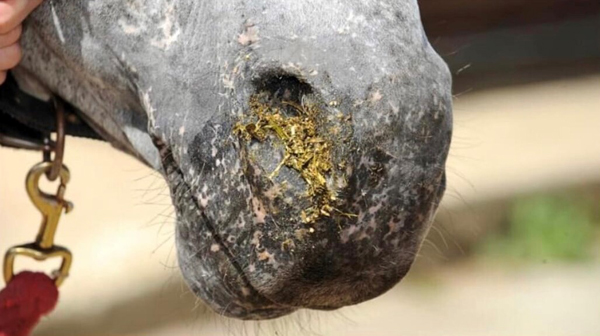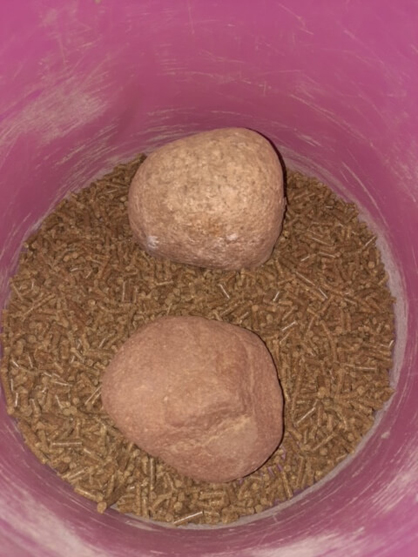How to Prevent Choke
By Melissa Johnson, DVM, Weitz Equine Veterinary Services
We have been seeing a higher than average volume of choke cases recently. The good news is that choke is probably the most preventable horse emergency we treat. So, let’s get into what choke is and how you can help prevent it!
What Is Choke?
Choke is when a bolus (Latin for “ball”) of food gets stuck in a horse’s esophagus during swallowing. It’s important to remember that the food becomes lodged in their esophagus, NOT their trachea. This means the horse can still breathe normally. However, this experience is still quite distressing to the horse and the owner.
Clinical Signs of Choke
Horses experiencing choke will show signs of agitation, such as head shaking, coughing, and neck stretching. Sometimes they will even lay down and roll on the ground. Additionally, they will often have feed and saliva coming out of their nostrils. Some horses will clear the obstruction on their own by coughing the food out or loosening it enough to fully swallow it. When they cannot dislodge the material in these ways, a veterinarian must pass a tube into the esophagus and flush the obstruction out. NEVER try to clear a choke on your own with water!
Why Does Choke Happen?
Choke most commonly occurs when a horse eats excessively dry and coarse feed materials such as pelleted grain, senior feed, beet pulp, or hay cubes. The mouth of a horse is not designed to masticate small pellets or cubes, and in their eagerness to feed, horses may consume this material without properly chewing it. The unchewed food then expands in their very long and narrow esophagus and gets stuck there.
How Can Horse Owners Prevent Choke?
There are some very easy things you can do to keep your horse from choking.
1. Offer Hydration: If your horse has been out to pasture or is coming off of a trailer after an event, offer water and a small amount of hay BEFORE any pelleted material.
2. Slow Down Eating: Add large rocks or bricks to your horse’s feed bucket to make them eat around them, as this will slow down the rate of consumption. Many chokes in young horses occur because they are bolting their food.
3. Regular Dentistry: Keep your horse’s teeth in tip-top shape by having your veterinarian examine and float their teeth at least once per year.
4. Add Water: Wet down pelleted feed, hay cubes, and beet pulp. By adding water to your horse’s dry food in advance, the pellets or cubes will swell and break apart before your horse eats them. This is especially important for beet pulp! NEVER feed horses dry beet pulp.
For more articles from Weitz Equine Veterinary Services and to view the original article, visit: How to Prevent Choke (weitzequine.com)












